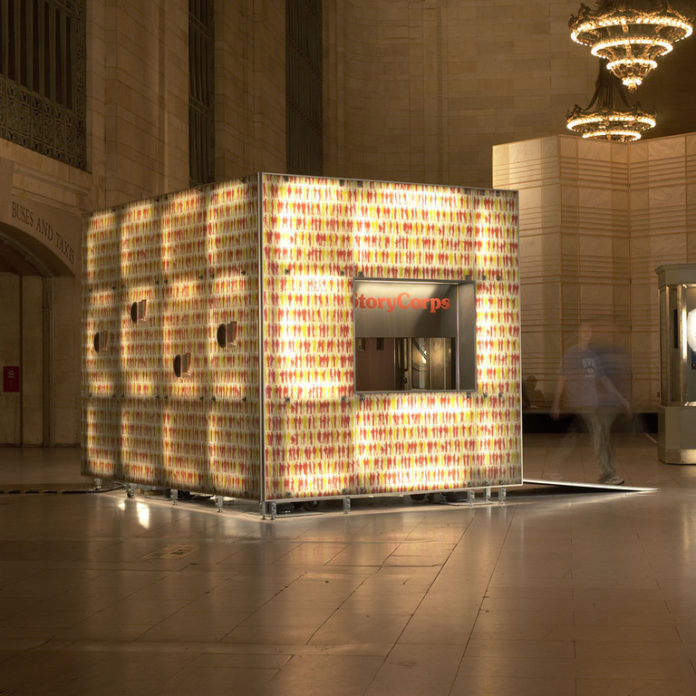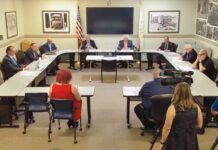
The interviews are deeply personal, intimate conversations – between friends, siblings, life partners, a child and a parent – about experiences that have shaped their lives: seeing a parent go to war, being in a gang, leaving the segregated South for the first time.
Since 2003, a project called StoryCorps has recorded more than 10,000 of these interviews at booths in 39 states, aiming to capture firsthand accounts of American life for posterity, for research and to share online and on National Public Radio.
This week, for the first time, StoryCorps is coming to Providence. From now through June 30, a “StoryBooth” will be set up between Burnside Park and Kennedy Plaza in downtown Providence.
The booth has space for two participants to sit with a recording device and talk about their life experiences. A trained facilitator will guide them through the process, suggest questions to get the interview started, and handle the technical aspects of the recording.
At the end of each 40-minute session, the participants get a CD of their interview, and with their permission, a second copy is sent to the American Folklife Center’s archives at the Library of Congress in Washington, D.C.; some will air on NPR’s Morning Edition.
In addition, graduate students and faculty in Brown University’s Public Humanities program, the local partner for StoryCorps, hope to share some of the interviews with the community and use them as the basis for future projects, said Stephanie Fortunato, a student and co-organizer for the event. Copies of all 130 interview sessions recorded in Providence will be housed at the John Nicholas Brown Center at the university.
“We’re hoping other institutions become interested and do their own events,” Fortunato said. “We’ve been in touch with libraries and might experiment with podcasting on the Internet.”
The city might even use the interviews during some of its planning charettes to encourage civic engagement, said Lynne McCormack, director of the Providence Department of Art, Culture & Tourism.
During the charettes, there are rooms where people can go and share their ideas about what they would like to see in their neighborhoods. The interviews might inspire them to be more open and creative, McCormack said.
She said her department might also provide a link to the interviews on its Web site.
For the Brown Public Humanities program, which graduated its first class, seven students, this spring, the StoryCorps project is also a learning tool.
“I am interested in working on this project because I am very interested in humanities-based community development work – particularly, the interpretation of place,” Fortunato said.
Through this project, she said, she has been able to do such work by helping to find a sample of people representative of Rhode Island’s ethnicities and socioeconomic spheres to fill half the interview slots. (The rest of the slots are open; to reserve one, go to www.storycorps.net or call 1-800-850-4406.)
Brown partnered with community organizations to find the broadest spectrum of Rhode Island experiences. For example, Fortunato said, to represent Rhode Island’s marine culture, the group recruited a fisherman, a lobsterman and a light keeper to fill some of the slots.
The interviews are done in pairs, usually between two people who know each other very well, she said. It could be a daughter interviewing a mother or best friend interviewing best friend.
StoryCorps was launched in October 2003 by award-winning radio documentary producer and MacArthur Fellowship recipient Dave Isay. It is modeled after a project by the Works Progress Administration in the 1930s that gathered oral histories across the country.
Fortunato said the interviews will reflect “how we, as a society, function.” And she hopes they will be distributed across the state to foster “pride of place.”












